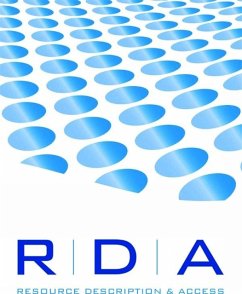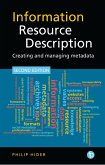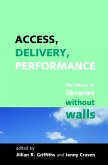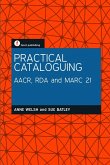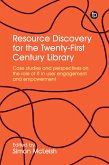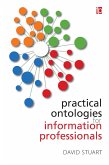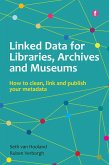Designed for the digital world and an expanding universe of metadata users, RDA: Resource Description and Access is the new, unified cataloguing standard. Benefits of RDA include: a structure based on the conceptual models of FRBR (functional requirements for bibliographic data) and FRAD (functional requirements for authority data) to help catalogue users find the information they need more easily; a flexible framework for content description of digital resources that also serves the needs of libraries organizing traditional resources; a better fit with emerging technologies, enabling institutions to introduce efficiencies in data capture and storage retrieval. The online RDA Toolkit (www.rdatoolkit.org) provides a one-stop resource for evaluating and implementing RDA, and is the most effective way to interact with the new standard. It includes searchable and browseable RDA instructions; two views of RDA content, by table of contents and by element set; user-created and sharable Workflows and Mappings-tools to customize RDA to support your organization's training, internal processes, and local policies; Library of Congress Policy Statements (LCPS) and links to other relevant cataloguing resources; and the full text of AACR2 with links to RDA. This full-text print version of RDA offers a snapshot that serves as an offline access point to help solo and part-time cataloguers evaluate RDA, as well as to support training and classroom use in any size institution. An index is included. The online RDA Toolkit includes PDFs, but purchasing the print version offers a convenient, time-saving option. Keep up with our update schedule. A new print accumulation of RDA will be issued once all of the reworded chapters are complete (expectd September 2013). All changes made to RDA up to and including the 2013 RDA Update will be included. Annual print updates are expected to this accumulation beginning in mid 2014 and every year thereafter.
Dieser Download kann aus rechtlichen Gründen nur mit Rechnungsadresse in A, D ausgeliefert werden.

